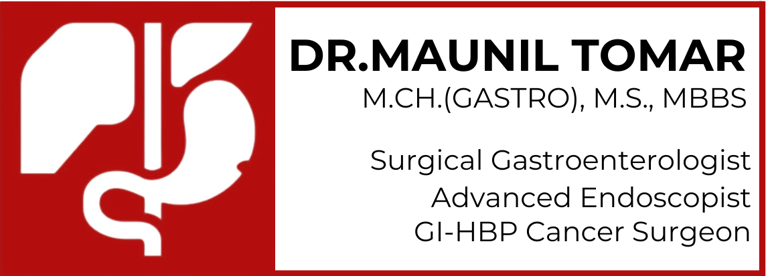Gallstones
Symptoms, Risks, and Life After Surgery
Gallstones, or cholelithiasis, are a common yet painful condition affecting the gallbladder, a small organ situated beneath your liver. These small, hardened deposits can range from the size of a sand grain to a golf ball. While many people live with "silent" gallstones without any issues, for others, they can cause sudden, intense pain and lead to serious complications.
As a leading centre for surgical care in Ahmedabad, we believe in empowering our patients with clear, accurate information. This guide will walk you through everything you need to know about gallstone risk factors, symptoms, and the gold-standard treatment: laparoscopic cholecystectomy.
What Causes Gallstones? Key Risk Factors
Your gallbladder stores bile, a digestive fluid that helps break down fats. Gallstones form when substances in the bile—primarily cholesterol and bilirubin—crystalize and harden. While the exact cause isn't always clear, several factors can increase your risk of developing them. These are often remembered by the "5 F's" and other contributing factors:
Female: Women are more likely than men to develop gallstones, largely due to the influence of hormones like estrogen.
Forty (and older): The risk increases with age, becoming more common in individuals over 40.
Fertile: Pregnancy and the use of birth control pills can increase cholesterol in bile, promoting stone formation.
Fat (Overweight): Obesity is a significant risk factor as it can raise cholesterol levels and lead to incomplete gallbladder emptying.
Family History: A genetic predisposition means you're more likely to develop gallstones if a close family member has had them.
Other Factors:
Rapid Weight Loss: Losing weight very quickly can cause the liver to release extra cholesterol into the bile.
Diet: A diet high in fat and cholesterol and low in fibre can contribute to gallstone formation.
Medical Conditions: Diabetes, Crohn's disease, and certain liver conditions can also elevate your risk.
When is Gallbladder Surgery (Cholecystectomy) Necessary?
The decision to operate is based almost entirely on your symptoms.
Asymptomatic (Silent) Gallstones: If your gallstones were found incidentally on an ultrasound and are not causing any symptoms, the standard approach is "watchful waiting." Surgery is typically not required.
Symptomatic Gallstones: If you experience one or more gallbladder attacks, surgery is the definitive and recommended treatment. This is because attacks are likely to recur, and the risk of developing serious complications increases over time.
The gold-standard procedure is Laparoscopic Cholecystectomy. This minimally invasive surgery involves making a few small incisions in the abdomen to remove the gallbladder. As a leading laparoscopic surgeon in Ahmedabad, we prefer this technique due to its significant patient benefits:
Less pain and scarring
Shorter hospital stay
Faster recovery and return to normal activities
Life After Cholecystectomy: A Healthy Future Without a Gallbladder
One of the biggest concerns for patients is how their body will function without a gallbladder. The good news is that you can live a completely normal and healthy life. Your liver will continue to produce bile; it will just drip directly into your small intestine instead of being stored first.
Here’s what to expect during recovery and beyond:
Immediate Post-Surgery Diet: You will start with clear liquids and gradually move to solid foods. It's best to avoid fatty, greasy, or fried foods for the first few weeks.
Long-Term Diet: Most people can return to their regular diet within a month. Some individuals may experience temporary bloating or diarrhea after eating fatty foods. If this happens, a low-fat diet can help manage symptoms. Introducing high-fibre foods like oats, fruits, and vegetables can also aid digestion.
Full Recovery: With laparoscopic surgery, most patients are back to their routine activities within one to two weeks.
My Office
Shalby Hospitals, Naroda, Ahmedabad.
Department of Gastrointestinal and HBP Sciences
Superspecialist GI-HBP Surgeon
Dr. Maunil Tomar
Gastro Oncosurgeon
Advanced Endoscopist
Contact
+91 9979591922
maunilgastro@gmail.com
